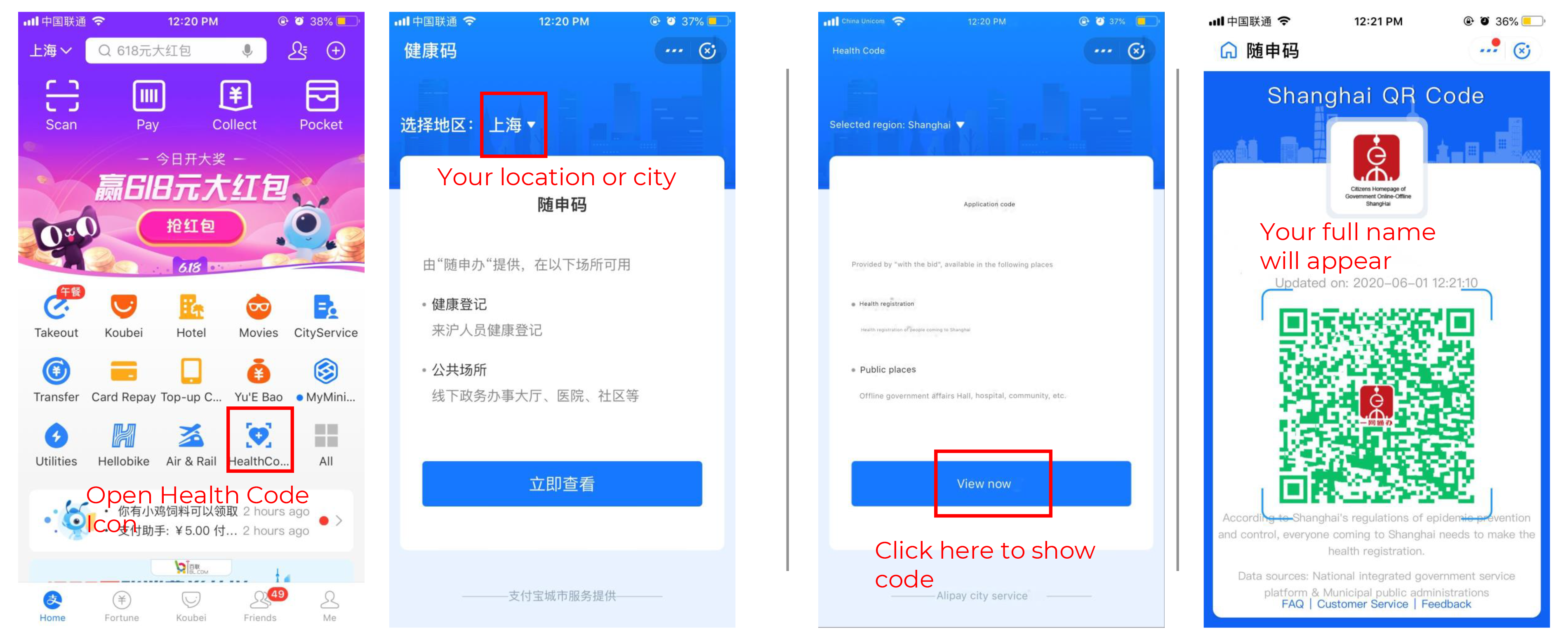A health tracker is something that China could have already prepared for. With its fast-technological development and intuitive use of digital tools, the country continues to fight COVID-19 with its new health code scheme. Furthermore, Chinese visa holders waiting to return to China should anticipate the need to present this code at any establishment. Thus, it should not come as a surprise for foreigners once they are back in the country.
Check out our previous post about Chinese Visa and Immigration Policies during COVID-19
The health code enables authorities to somehow filter out potential carriers of the virus and thus, combat its further spread. Have a look at what it is like. Keep reading!
What is China’s health tracker?
If you are familiar with the QR code typically used in China for various online transactions, then you already have an idea of what a health code would look like. It is simply a QR code that people scan to prove to authorities that they are in a healthy state. And this code is very crucial in determining who can or cannot get around places freely.
The local health authorities in China are responsible for issuing such codes. China’s expertise in AI algorithms and big data gathering through the Chinese tech company Alibaba has enabled the digitalization of health monitoring and tracking. For instance, contact tracing for COVID-19 is certainly one of the most important measures to prevent another wave of the virus in the country.
How to get your health declaration code?

The steps in obtaining the health code are simple. All you need is to open applications such as WeChat or Alipay. The above image shows how to get your health code from the Alipay app. According to the app, the national and local government services provide the data sources for the health code. During the first registration, the users will have to input personal information such as passport number, phone number, travel, and contact history with any confirmed or suspected COVID-19 patient. They will also have to select items related to symptoms if there are any.
The green color represents your health status and thus, you are safe to travel and allowed to enter public establishments that require this code. These include hospitals and other public offices all over the country. On the other hand, a yellow or red color indicates that you have either been in contact with an infected person or you are infected, respectively. Hence, you will be subjected to travel restrictions or barred from entry to certain places.
China’s health surveillance system
China’s mass surveillance system is not unknown to the rest of the world. The country has millions of CCTV cameras installed in almost every corner of the streets. This system is intended for strict governance and enhanced security. Moreover, CCTVs are enablers to China’s social credit system which ranks Chinese citizens according to their social credit scores. Local authorities then use these scores to evaluate punishment or increase benefits for every citizen’s ‘social’ behavior.
Additionally, China is also home to big tech giants like Alibaba, Tencent, Dahua Technology, and Bytedance, among others, that promote machine learning and big data collection for the convenience of internet users. These realities, therefore, reflect China’s immense ability to centralize information and build a so-called health surveillance system as a response to COVID-19.
Issues surrounding the digital health code
Post-COVID-19, authorities in Hangzhou, where the code system was first implemented, are planning to use the health codes to designate their residents’ health status. Thus, through their medical records which also include their regular check-ups and lifestyle habits, Chinese citizens may also start earning health scores under the social credit system. Therefore, the code can serve both as a health tracker and a basis for social ranking.
However, the Hangzhou government has clarified that a nationwide rollout of the said plan is not yet mature. According to officials, the conditions and environment for this type of code still need to be evaluated. For example, there are some problems that have to be addressed such as a repeated scan of codes at a single location.
Meanwhile, the health tracker code system, if permanently installed, will raise further raise concerns over privacy. So far, Chinese social media users have questioned the lack of transparency on how personal data are collected and stored. However, Alibaba explained that the company has only provided technical support to the app and has no any access to the data.If you want to know more about doing business in China, contact our team for consultation and assistance. Follow us on social media to get the latest news!
Our experienced team has the necessary expertise and the know-how to support you with your business – have a look at the services we offer.






